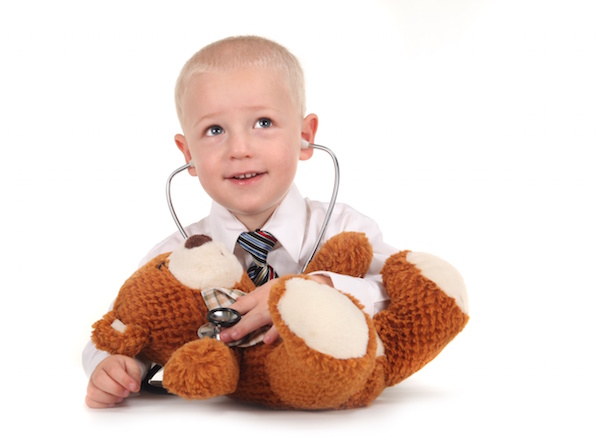
TUESDAY, Feb. 25, 2014 (HealthDay News) — Babies born to women who suffer a fever early in pregnancy may have a slightly increased risk of certain birth defects, a new review finds.
A number of studies have suggested there’s a link between fever during pregnancy and birth defect risk. The new review, reported online Feb. 24 and in the March print issue of Pediatrics, pulls together the results of past work and confirms that there does, in fact, seem to be a connection.
But experts stressed that the reasons for the link are not clear. And even if moms’ fevers do contribute to the risk of birth defects, it would be a very small increase in actual numbers.
“We do want to emphasize that since we are primarily dealing with rare diseases, then the overall risk of having a child suffering from any of these conditions is still very small,” said lead researcher Julie Werenberg Dreier, a graduate student at the University of Southern Denmark, in Esbjerg.
Specifically, her team found that across 46 studies done since the 1990s, fever during the first trimester was tied to a 50 percent to threefold increase in the risks of cleft palate, heart defects and neural tube defects. Neural tube defects include serious malformations of the brain and spine, such as spina bifida.
The first trimester was key, because that’s when birth defects typically take shape.
But while those increased risks sound large, the odds of harm to any one newborn would still be quite low, said Dr. Siobhan Dolan, an obstetrician and medical advisor to the March of Dimes.
For example, spina bifida affects one in 2,858 newborns in the United States, according to the U.S. Centers for Disease Control and Prevention.
“These are rare events,” said Dolan, who was not involved in the study. “So even with an increased risk, the chances of it happening are low.”
And she and Dreier both said it’s unclear whether it’s the fever, or the underlying infection, that may be the problem.
“It’s hard to tease out,” Dolan said. “Is it actually the heat [from the fever]? Or is it the infection causing the fever?”
All of that said, Dolan suggested women look at the findings as “empowering, rather than scary.” That’s because acetaminophen (the active ingredient in Tylenol) is an effective fever reducer, and it’s safe to use during pregnancy.
So if fever does boost the risk of birth defects, women can do something about it, Dolan said.
And there is evidence from animal research that fever, itself, is to blame, according to Dreier. In species from mice to monkeys, increased body temperature has been found to raise the risk of poor fetal growth and birth defects.
Plus, a number of studies have looked at whether the risk of birth defects is lower when moms-to-be treat their fever with acetaminophen or other fever reducers. Nearly all found that the risk was lower, or completely erased, Dreier’s team wrote.
Dolan said acetaminophen is the fever reducer of choice during pregnancy, because it has not been linked to any risks to the fetus. Women can take it without asking their doctor first — but, Dolan added, they should use only the recommended dose.
Dreier’s team also reviewed studies that looked at the link between fever and other problems — including children’s risk of autism, cerebral palsy, allergies and asthma. There was some evidence of higher risks, but the studies tended to be inconsistent, or there were too few of them.
Dreier said there’s a need for more longer-term studies. And while the review found an association between fever during pregnancy and an increased risk of birth defects, it did not prove a cause-and-effect link.
For now, Dolan said the message for women is to treat their fevers, particularly in the first trimester.
“Usually, the thinking during pregnancy is, ‘Don’t take anything,'” Dolan said. “But this suggests that with fever, the opposite is true. Taking acetaminophen is the way to go.”
More information
The March of Dimes has more information on having a healthy pregnancy.
Copyright © 2026 HealthDay. All rights reserved.

